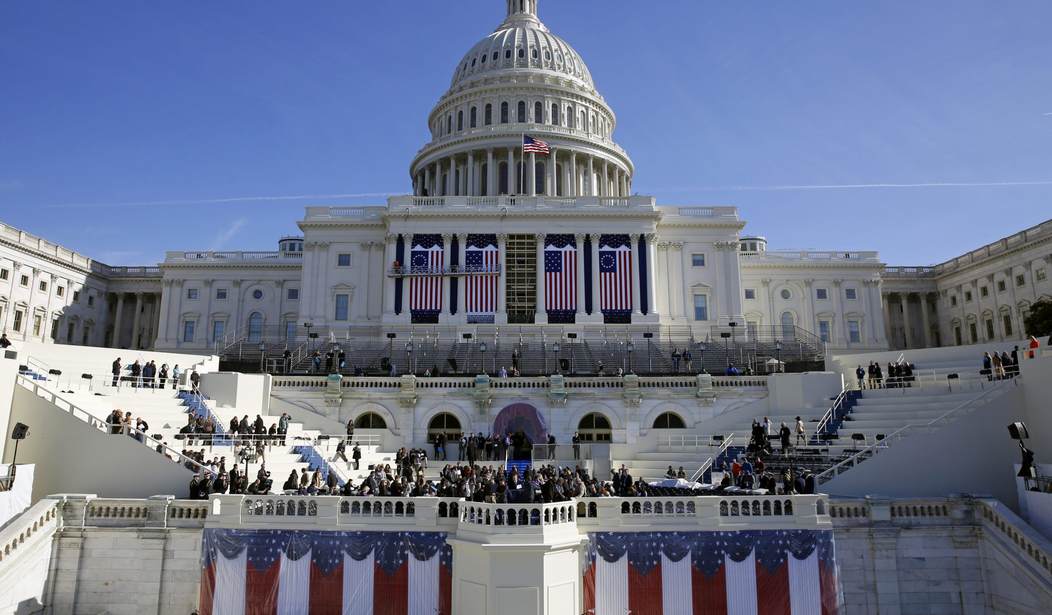Those who are ignorant of history, George Santayana remarked, are condemned to repeat it. It’s not quite true, of course.
Santayana’s elder tradesman, Heraclitus, was right when he said that you cannot step into the same river twice. Whether or not you know anything about it, history, that great river, keeps meandering on. It does not double back.
But Santayana’s oft-quoted remark does have a salutary invigorating effect. Much like that “self-evident half-truth” (as the philosopher Harvey Mansfield put it) that “all men are created equal,” Santayana’s admonition might well exert, on susceptible souls, the goad to learn more about mankind’s adventure in time, which is a good thing. There are patterns to be observed, continuities (and discontinuities) noted, metabolisms of power registered and understood. So even if Santayana overstated the case, the failure to study history — for a culture as well as for individuals — is a sort of existential threat.
Or, to put it positively, a study of history is a prophylactic learning experience.
One of the things one learns, I believe, is that Karl Marx was not always wrong. For example, when he amends Hegel’s declaration that history repeats itself, Marx notes “he forgot to add, the first time as tragedy, the second time as farce.”
It tells us something about Marx that the only two choices he he can envision are tragedy and farce. Is there no tertium quid?
Perhaps we are about to find out.
Hysteria tends to feed on itself, so it is no surprise that the #NeverTrump/#AntiTrump brigades have been vying to outdo one another in histrionics. Hundreds of thousands of protestors are about to descend upon Washington, D.C., to dispute the results of an open, democratic election. In many cases, the antics remind one of nothing so much as a distraught toddler who follows his mother around the house and falls down in a tantrum whenever he has her attention. It’s funny when it’s a two-year-old. When the source of the tantrums are in their 20s, 30s, and 40s, it is still funny, but also pathetic.
Still, it is worth noting that the minatory rhetoric seems to increase in volume daily. One example: a group called “DisruptJ20” aims to “shut down the inauguration.” David Thurston, a spokesman for the group, stated: “We want to see a seething rebellion develop in this city and across the country.”
Does he have any idea what he is talking about? What about the long tradition in this country of the peaceful transfer of power? “We are not in favor of a peaceful transition of power,” Legba Carrefour, another “DisruptJ20 representative, said. He added: “[W]e need to stop it.”
What are we to make of such melodrama? Are we living through a reprise of 1968? Or, as some have suggested, of 1860, when the country descended into civil war?
As I write, 47 Democratic congressmen have announced that they plan to “boycott” the inauguration (John Lewis doesn’t count: he boycotted when George W. Bush was elected, too, as no Republican is “legitimate” for that race-baiting charlatan).
Meanwhile, we are told that the legacy media are preparing for “war” with Donald Trump, with reporters “put on a war footing.”
Of course, you see something of this every time a recognizably conservative figure wins the presidency. It happened to Reagan. It happened to W. If it seems more extreme this time around, it is partly because Trump and his coalition are offering much stiffer resistance to the forces that would destroy them.
The Left blamed Hurricane Katrina on George Bush. He ought to have done a King Canute and humiliated them into silence. Instead, he meekly retreated. Trump doesn’t do meek retreat and neither, I suspect, do those who put him in the White House. As Victor Davis Hanson noted in City Journal a few days ago, “one irony of the 2016 election is that identity politics became a lethal boomerang for progressives”:
After years of seeing America reduced to a binary universe, with culpable white Christian males encircled by ascendant noble minorities, gays, feminists, and atheists — usually led by courageous white-male progressive crusaders — red-state America decided that two could play the identity-politics game. In 2016, rural folk did silently in the voting booth what urban America had done to them so publicly in countless sitcoms, movies, and political campaigns.
The establishment GOP still has its knickers in a twist, but Trump and his supporters understand the wisdom of the old French adage:
Cet animal est très méchant,
Quand on l’attaque il se défend.“This animal is very strange: when one attacks it, it defends itself.”
This is not to deny, as Andy McCarthy pointed out recently, that the Left tends to be better at shaping The Narrative, the public perception of political reality, than the GOP. Part of their success these last eight years has been the collusion of the Obama administration in furthering their chosen Narrative — on Benghazi, on the “bitter clingers,” on the “deplorables,” and more. That critical support — from the DOJ to the IRS to the EPA and the Department of Education — will be withdrawn in two days, two hours, and six five minutes.
The question then will be whether the legacy media, the Code Pink crowd, and the Deep State elite can sustain an effective opposition by themselves. At this stage, I think, it is an open question.
If Trump gets his cabinet picks, if he comes into office and unleashes a blitzkrieg of promised reforms, I suspect the opposition, after a period of fletus et stridor dentium (Matthew 13:50), will subside into pathetic irrelevance.
That’s a big “if,” I understand, but as of Wednesday, January 18, 2017, Trump seems firmly in command and poised to make America great again.
In his book Shattered Consensus, James Piereson points out that America has tended to have not a two-party system but rather a “one and one-half party system consisting of a ‘regime party’ and a competitor forced to adapt to its dominant position.” These competitors, he writes — the Whigs in the 1840s, the Democrats after the Civil War, and the Republicans in the post-war era — occasionally won national elections, but only after accepting the legitimacy of the basic political themes established by the regime party.
What we may be witnessing is a national reconfiguration — Piereson calls it America’s fourth revolution — in which the elite, pantywaist consensus of the Left is giving way to something more traditional, more manly, more rugged. I don’t expect this transition to be painless or to happen without a measure of hysteria from the skirling feminized cadres of the disintegrating consensus. But unless they succeed in destroying Donald Trump in the opening months of his administration, they are destined, like the Whigs of yore, to recede into querulous obscurity.
It cannot happen soon enough.









Join the conversation as a VIP Member